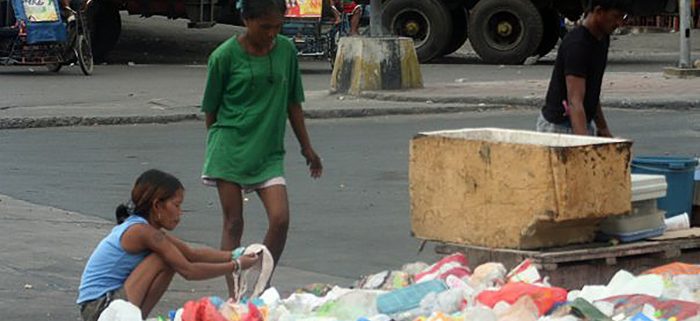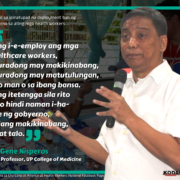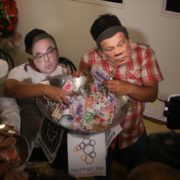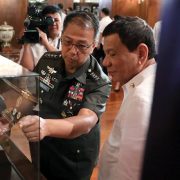Duterte administration being dishonest about economic ‘gains’
Research group IBON said that the Duterte administration is being dishonest in its recent pronouncements about high growth, reducing unemployment, and reducing poverty. The group said that the government is taking liberties with statistics as part of its propaganda campaign that President Duterte is keeping his promise of real change.
In its pre-State of the Nation Address (SONA) forum, the Department of Finance (DOF) hailed the Duterte administration for its achievements during its first three years in terms of “rapid economic expansion”, “the lowest [unemployment] in 40 years”, “alleviating poverty”, and Tax Reform for Acceleration and Inclusion (TRAIN) law “benefiting 99 percent of taxpayers”.
According to IBON executive director Sonny Africa however, growth has actually been slowing since the start of the Duterte administration. Philippine Statistics Authority (PSA) data show that gross domestic product (GDP) growth has been slowing in the 11 quarters since the start of the Duterte administration from 7.1% in the third quarter of 2016 to 5.6% in the first quarter of 2019. There was a momentary increase to 7.2% in the third quarter of 2017 but growth fell rapidly after this. IBON also pointed out that the growth was slowing even before the budget impasse and election ban on infrastructure spending.
Africa added that the economic managers are being deceitful in claiming that the 5.1% unemployment rate in April 2019 is the lowest unemployment in four decades. He pointed out that the DOF is well aware that the change in the official definition of unemployment in 2005 drastically reduced the reported unemployment rate and number of unemployed which makes the April 2019 figure incomparable with the 25 years of data before 2005.
On the contrary, IBON said, computing according to the original definition of unemployment for comparability would show that the real unemployment rate in 2018 is 10.1% and the real number of unemployed is 4.6 million. These are much worse than the already high 9.0% unemployment rate and 4 million unemployed in 2016, again computed according to the original definition. In contrast, officially released figures for 2018 were a grossly underreported 5.3% and 2.3 million, respectively.
The high unemployment is a direct result of how only an annual average of 81,000 new jobs have been created since the start of the Duterte administration, from 41 million employed in 2016 to 41.2 million in 2018. This is the worst job generation in the post-Marcos period.
Poverty statistics meanwhile show seemingly less poor Filipinos only because of government’s very low poverty threshold, said Africa. The government’s Php69.50 daily per capita poverty threshold and only Php48.60 subsistence or food threshold in the first semester of 2018 are absurdly low and not conceivably enough to meet decent minimum standards for food, shelter, transportation, health care, and education, stressed Africa. He said that this leads to a gross underestimation of the real number of poor Filipinos.
Finally, Africa clarified that it is very deceitful to claim that TRAIN benefited 99% of taxpayers. The Duterte administration wants to make it appear that 99% of Filipinos benefited from TRAIN but the truth is that only 5.5 million personal income taxpayers with tax cuts out of 23 million Filipino families gain from TRAIN. The poorest 17.2 million or eight out of 10 Filipino families will pay TRAIN’s higher consumption taxes but without any personal income tax gains to offset these. The government is trying to distract the public from how a disproportionate part of TRAIN revenues come from the poorest majority of Filipinos due to additional levies on consumption goods including petroleum products and sugar-sweetened beverages, said Africa.
IBON warned the public to be more discerning about the government claims and not to take these at face value. Yet the country can only start to take steps to real solutions when there is more candor and honesty, rather than self-serving propaganda, about the real problems the economy and the people face. #







